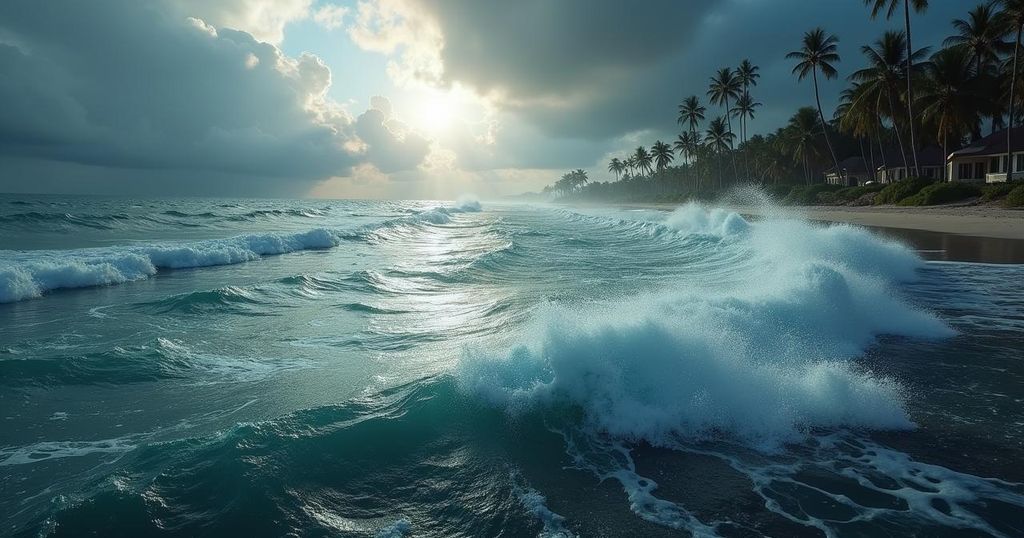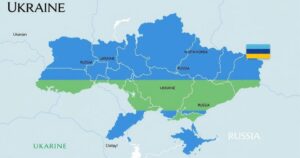The Guardian’s Perspective on Hurricane Milton and Climate Change Politics

Hurricane Milton made landfall in Florida as a Category 3 hurricane, following Hurricane Helene’s devastation. Climate change, largely caused by human activity, is intensifying these weather events, with predictions of increased hurricane frequency. Political leaders like Ron DeSantis and Donald Trump deny or downplay climate change, complicating effective disaster responses. The upcoming elections present a crucial opportunity for voters to consider the implications of leadership decisions on climate action and disaster preparedness.
Preparations for Hurricane Milton were extensive, involving significant evacuations and deployment of thousands of National Guard troops and personnel from the Federal Emergency Management Agency (FEMA). Fortunately, the storm weakened before making landfall in Florida as a Category 3 hurricane. In less than two weeks, this was the second hurricane to strike the state, following Hurricane Helene, which resulted in at least 225 fatalities in the U.S. Recent analyses indicate that the heightened ocean temperatures contributing to the severity of these storms are disproportionately linked to human-induced climate change. Climate scientists estimate that Helene’s rainfall could have increased by 50% due to these conditions and predict that the frequency of such dual hurricanes may approach every three years if fossil fuel consumption continues unchecked. Extreme weather patterns are rapidly becoming normative. Recent occurrences of heavy rainfall and flash floods span across various regions, including the Sahara, Myanmar, Vietnam, Thailand, Brazil, the United Arab Emirates, and Germany, alongside intense heatwaves affecting areas in South and Southeast Asia and the Mediterranean. What is particularly notable in Florida is the contrast between the emergency responses to these hurricanes and the reluctance among some political leaders to confront the underlying issues of climate change. Currently, Florida’s governor, Ron DeSantis, who has cautioned about the potential devastation from Hurricane Milton, simultaneously promotes pro-fossil fuel policies and has controversially erased references to climate change from state law. Furthermore, former President Donald Trump, who is expected to win Florida in upcoming elections, has previously denied the impacts of climate change, disputing the consequences faced by communities after Helene’s devastation. His administration’s return promises to exacerbate the effects of climate change by rejecting scientific consensus and risking U.S. re-entry into the Paris Climate Agreement. While Vice President Kamala Harris’s support for new fracking initiatives reflects a strategic appeal to voters in pivotal states, it is disappointing in light of the pressing climate crisis. The Democratic Party remains more committed to addressing climate change, even if their solutions fall short of what is needed. Conversely, certain factions within the Republican Party, including Marjorie Taylor Greene, propagate conspiracy theories related to climate control, further complicating opportunities for meaningful discussion on combating climate change. As voters prepare to participate in the upcoming elections, they should critically consider that a return to Trump’s administration could significantly escalate the dangers posed by the climate crisis in the United States and beyond.
Hurricane Milton’s impact highlights the growing threat of extreme weather events exacerbated by climate change, particularly in Florida. The rising sea temperatures and atmospheric changes linked to global warming have been established as primary contributors to the increasing frequency and severity of hurricanes. This situation is compounded by political dynamics, particularly the stance of key leaders on climate issues, which significantly influence public preparedness and policy responses. The article discusses the implications of these extreme events and political inaction on future disaster management and climate mitigation efforts.
In summary, the escalating severity of hurricanes like Milton and Helene can be directly linked to human-induced climate change, which continues to be a contentious political issue. Despite the urgent need for comprehensive climate action, political leaders often neglect to address the underlying causes of these disasters. Voters must consider the consequences of electing leaders who disregard climate realities, particularly in light of the increasing frequency of extreme weather events. The upcoming elections will serve as a critical moment for the public to evaluate the commitment of candidates to addressing climate change and its far-reaching impacts.
Original Source: www.theguardian.com




